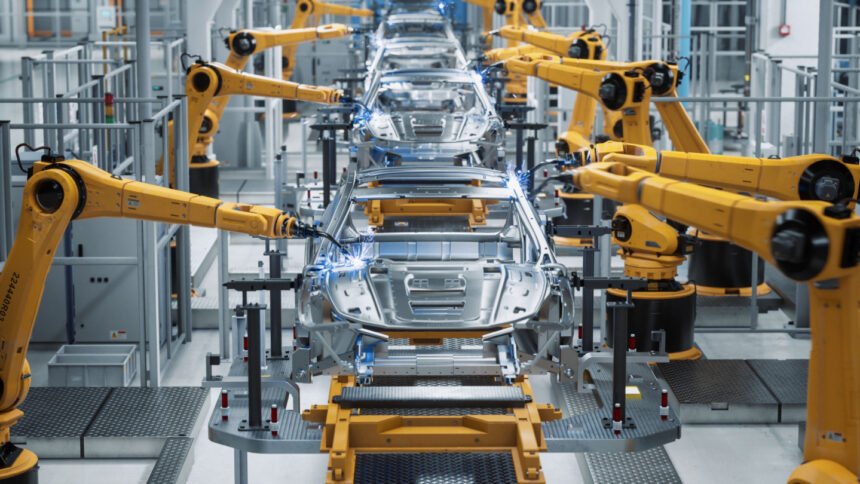The Japanese automotive industry saw a significant increase in the installation of industrial robots in 2024, with a total of about 13,000 robots being installed. This marked an 11% rise from the previous year, reaching the highest level recorded since 2020, as reported by the International Federation of Robotics (IFR).
Takayuki Ito, President of the IFR, highlighted Japan’s leading position as the world’s predominant robot manufacturing country, representing 38% of global robot production. The automotive sector in Japan is currently undergoing a restructuring process to adapt to alternative powertrains, with most car manufacturers looking to expand their range of battery and fuel cell electric vehicles. This shift towards a diversified portfolio necessitates the adoption of appropriate production technology, according to the IFR.
The IFR estimates that car manufacturers account for approximately 25% of all robot installations in Japan on an annual basis. The electrical and electronics industry is the only sector that surpasses this, with installations of around 14,000 industrial robots in 2024, reflecting a 5% decrease from the previous year.
“The use of robotics not only characterizes modern industrial workplaces in Japan but also contributes to developments in everyday applications,” stated Takayuki Ito.
As the automotive industry in Japan continues to evolve, the integration of robotics remains a crucial aspect of enhancing production efficiency and meeting the demands of the market. With the increasing emphasis on electric vehicles and alternative power sources, the role of industrial robots in streamlining manufacturing processes and ensuring quality standards is more vital than ever.
The graph below illustrates the trends in the Japanese automotive industry, showcasing the growth in robot installations and the sector’s overall performance.
Overall, the surge in industrial robot installations in the Japanese automotive industry signifies a shift towards advanced manufacturing technologies and a commitment to staying at the forefront of innovation. As the industry embraces automation and robotics, it paves the way for enhanced productivity, efficiency, and competitiveness in the global market.







